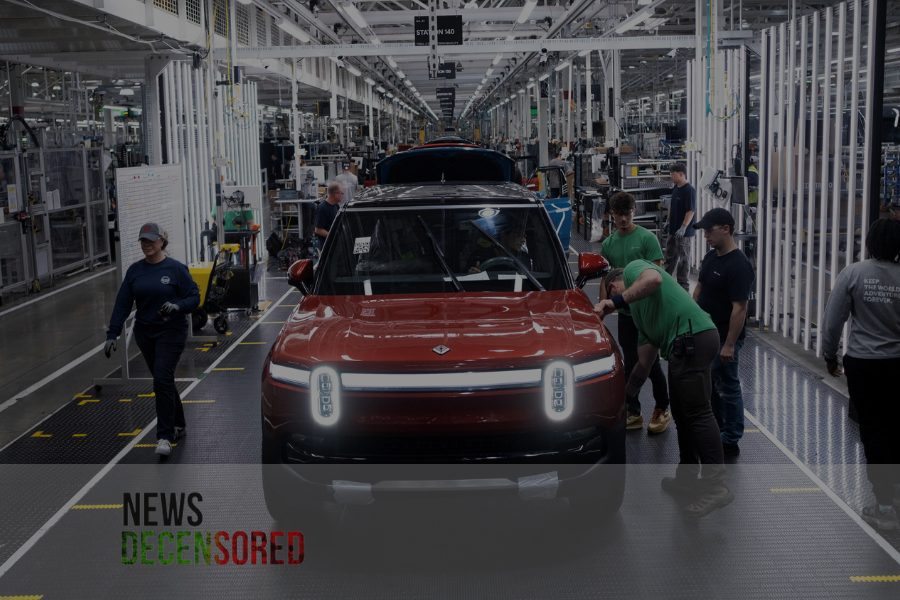Volkswagen is making a new bet with the EV market and Tesla in its sights; it has committed to investing up to $5bn in Rivian, a young American competitor. This huge amount will be used to form a synergy to share technology, with the ultimate goal of strengthening each company in the competitive EV market.
After the news, Rivian’s share price jumped by about 50% as investors expected a lot to come out of the partnership. The partnership arrived at a time when the rivalry between players in the EV market has intensified and against the backdrop of the attempts by some Western nations to modernise China’s electric car makers through tariffs.
According to the deal, VW will initially invest $1 billion in Rivian, and the remainder of $4 billion is expected to be invested in the electric vehicle start-up by 2026. Rivian was launched in 2009, and to date, it has yet to post its quarterly profits; it has posted a net loss of one billion. Four billion in the first quarter of 2024 will attract above-average sales growth and continue to invest in new technology and talent. However, the indicated financial difficulty is believed to receive a strong bolt from the partnership with VW to grow Rivian’s operation and market standing.
As it has been recently observed, VW, like other car manufacturers, has been under pressure from rivals like Tesla and even China’s BYD as it shifts from fossil fuel vehicles to electric ones. Through this partnership, Rivian will give VW input on its state-of-the-art software, which in turn will be implemented into VW vehicles to complement the technological front.
The market for EVs has greatly expanded, and many new firms have entered it, but they have not had success. Higher interest rates have also reduced consumers’ buying power and significantly affected the sale of luxurious assets such as EVs. Thus, the new partnership between VW and Rivian is regarded as strategic to overcome these evolutions and achieve a better position in this market.
The threats include intense competition from other established global players in the EV market and increasing attempts by Chinese EV manufacturers, who are aggressively opening their markets overseas. The EU said earlier this month it planned to increase tariffs on China’s EVs by as much as 38%. The decision came after a probe conducted by the European Commission that concluded that Chinese EV companies were unfairly benefactors of government subsidies.
China has reacted to the EU’s proposed tariffs, saying that they violate international trade laws and referring to the investigation as protectionism. This has called for diplomatic talks between officials of the two economies by July 4.
The tariff increase proposal supports the recent U.S. move to increase the tariffs on Chinese EV Imports from 25% to 100%. This is in line with a tactical plan meant to shield home-grown industries and remove their dependence on China’s technological products. It has also revealed that it might follow the same measures to conform to its partners.
At the same time, Tesla reported on Tuesday the recall of the majority of its Cybertrucks sold in the U.S. because of problems with the windscreen wipers and exterior trim. The recall is for over 11,000 cars that were first sold in showrooms at the end of November last year.
This is considered a big boost for Rivian and marks how the alliance is being set in the EV industry, where traditional automotive giants such as VW and new players like Rivian are gearing up for a new battle phase in the new age of mobility. In this regard, cooperation like the one between VW and Rivian will be even more critical as global competition intensifies and trade wars emerge.















